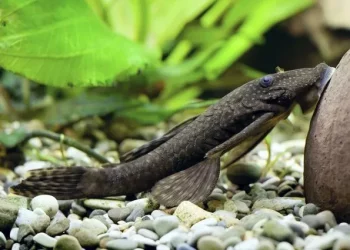Betta fish, also known as Siamese fighting fish, are one of the most popular freshwater aquarium fish due to their vibrant colors, unique personalities, and relatively low maintenance needs. However, many new fish enthusiasts often wonder about the specifics of their care, particularly when it comes to oxygen supply. One common question arises: Can betta fish live without an oxygen pump? In this article, we will delve into the unique biology of betta fish, their natural habitat, the role of oxygen in their well-being, and whether they can thrive without an oxygen pump.
Understanding Betta Fish and Their Natural Habitat
Before addressing the oxygen needs of betta fish, it’s essential to understand their natural habitat. Betta fish are native to the shallow waters of Southeast Asia, particularly in countries like Thailand, Cambodia, and Vietnam. They are commonly found in rice paddies, slow-moving streams, and swamps. These environments are characterized by warm temperatures, low water movement, and abundant vegetation.
Adaptations to Low Oxygen Environments
One of the most fascinating aspects of betta fish is their remarkable adaptation to low-oxygen environments. Betta fish possess a unique respiratory system that includes a labyrinth organ, allowing them to extract oxygen from the air. This adaptation is vital because their natural habitats often have reduced oxygen levels due to stagnant water and the decomposition of organic materials.
The labyrinth organ allows betta fish to gulp air from the water’s surface, which is then used to oxygenate their blood. This ability distinguishes them from many other fish species that rely solely on gills for respiration. As a result, betta fish can survive in oxygen-poor water, making them more resilient in less-than-ideal conditions.
The Role of Oxygen in a Betta’s Life
While betta fish can survive without an oxygen pump, it’s important to understand the significance of oxygen in their lives. Oxygen is essential for cellular respiration, the process by which fish convert food into energy. Here are some key points to consider:
1. Basic Metabolic Needs
Just like all living organisms, betta fish require oxygen to maintain their metabolic functions. In low-oxygen conditions, their energy levels may decline, leading to lethargy and a weakened immune system. Fish that do not receive adequate oxygen can become more susceptible to diseases and parasites.
2. Water Quality and Pollution
In a natural habitat, bettas are accustomed to variable water quality. However, in a closed aquarium environment, the water quality must be carefully maintained. Without proper filtration and aeration, waste products can accumulate, reducing oxygen levels and harming the fish. Regular water changes and monitoring water parameters are crucial for the health of betta fish, especially if there is no oxygen pump in place.
3. Behavior and Activity Levels
Oxygen levels can significantly influence a betta’s behavior and activity. In well-oxygenated water, bettas are more active, curious, and engaging. They exhibit natural behaviors such as swimming, exploring their surroundings, and interacting with their owners. Conversely, low oxygen levels can lead to sluggishness and disinterest in their environment, which can be concerning for pet owners.
Do Betta Fish Need an Oxygen Pump?
Now that we have established the importance of oxygen for betta fish, let’s explore whether they truly need an oxygen pump in their tanks.
1. Betta Fish and Oxygen Pumps: A Closer Look
Many aquarium enthusiasts use oxygen pumps to enhance the oxygen levels in their tanks. These devices can be particularly beneficial in larger aquariums or in tanks housing multiple fish species that require higher oxygen levels. However, betta fish have evolved to thrive in low-oxygen conditions, making them somewhat unique among fish.
2. Can Bettas Survive Without a Pump?
Yes, betta fish can survive without an oxygen pump. They are equipped to handle low-oxygen environments due to their labyrinth organ, which enables them to breathe air. However, this doesn’t mean they should be kept in suboptimal conditions. While they can live without an oxygen pump, the overall health and vitality of the fish will be greatly improved in a well-oxygenated environment.
3. Considerations for Betta Owners
If you decide not to use an oxygen pump for your betta fish, consider the following:
Tank Size: A larger tank can hold more water and, consequently, more oxygen. Smaller tanks can quickly become depleted of oxygen, especially with poor water quality.
Water Surface Area: Increase the water surface area by using a wider tank or adding decorations that create more surface exposure. This allows for better gas exchange, enabling oxygen to enter the water more efficiently.
Water Movement: Bettas prefer calm waters, but a gentle filter can create surface movement, facilitating oxygen exchange without creating a current that could stress the fish.
Alternative Methods for Providing Oxygen
For betta fish owners who opt not to use an oxygen pump, there are several alternative methods to ensure that their fish have sufficient oxygen in their tanks.
1. Aquarium Plants
Live plants not only enhance the aesthetic appeal of your aquarium but also contribute to oxygen levels through photosynthesis. During the day, plants absorb carbon dioxide and release oxygen, creating a healthier environment for your bettas. Some popular aquatic plants for betta tanks include:
Java Fern: Hardy and easy to care for, this plant provides shelter and oxygen.
Anubias: Slow-growing and adaptable, Anubias are great for adding greenery without overcrowding the tank.
Hornwort: This floating plant helps absorb nutrients and provides oxygen during the day.
2. Water Changes
Regular water changes are essential for maintaining water quality and oxygen levels. Changing 20-30% of the water weekly can help remove toxins, reduce waste accumulation, and promote a healthier environment. Ensure that the new water is dechlorinated and at a suitable temperature for your betta.
3. Surface Agitation
While bettas prefer calm waters, some surface agitation is beneficial for oxygen exchange. You can create gentle ripples at the surface by positioning a filter to direct the water flow towards the surface or using a small air stone. Just be cautious not to create too strong of a current that could stress your betta.
Signs of Low Oxygen Levels in Betta Fish
Even without an oxygen pump, it’s essential to monitor your betta fish for signs of low oxygen levels. Here are some common indicators to watch for:
1. Lethargy
If your betta seems unusually sluggish or inactive, it may be a sign that it is not getting enough oxygen. Healthy bettas are typically active and curious, swimming around their tank.
2. Gasping at the Surface
Betta fish may spend an excessive amount of time near the surface of the water, gulping air. While this behavior is normal to some extent, excessive gasping can indicate low oxygen levels.
3. Color Changes
A stressed or unhealthy betta may show signs of color fading or becoming dull. Healthy bettas display vibrant colors, and any significant changes should prompt further investigation into water quality and oxygen levels.
4. Increased Aggression
In some cases, low oxygen levels can lead to increased stress and aggression in betta fish. If you notice your betta acting more territorial or aggressive than usual, it may be a sign of an unhealthy environment.
The Importance of Monitoring Water Parameters
Whether or not you use an oxygen pump, maintaining proper water parameters is crucial for the health of your betta fish. Regularly testing the water for ammonia, nitrites, nitrates, pH, and temperature can help ensure a stable and healthy environment. Here are some guidelines for optimal water parameters for betta fish:
Temperature: Betta fish thrive in warm water, ideally between 75°F and 82°F (24°C – 28°C).
pH Levels: A slightly acidic to neutral pH (6.5 to 7.5) is best for bettas.
Ammonia and Nitrite Levels: Both should be at 0 ppm to prevent stress and toxicity.
Nitrate Levels: Keep nitrates below 20 ppm for optimal health.
The Benefits of Using an Oxygen Pump
While it’s possible for betta fish to live without an oxygen pump, there are distinct advantages to having one in the aquarium:
1. Improved Water Quality
An oxygen pump can help keep water circulating and aerated, which can lead to better overall water quality. This is particularly important in tanks with multiple fish, as increased bioload can deplete oxygen levels more quickly.
2. Enhanced Health and Vitality
Higher oxygen levels can lead to increased energy levels in betta fish, promoting healthier and more active behavior. A vibrant and lively betta is a sign of good health and a well-maintained environment.
3. Stress Reduction
By providing an optimal oxygen level, you can reduce the stress on your betta fish. Stress can lead to a variety of health problems, including a weakened immune system, making it more susceptible to disease.
Conclusion
In conclusion, while betta fish can indeed survive without an oxygen pump, their health and happiness are significantly enhanced when they have access to optimal oxygen levels. Understanding their unique adaptations and needs is essential for any betta owner. By creating a balanced environment that includes proper tank size, live plants, regular water changes, and monitoring of water parameters, you can ensure that your betta fish thrive.
Remember, the goal of any aquarium is to mimic the natural environment as closely as possible, even when keeping fish that are well-adapted to low-oxygen conditions. By providing a caring and attentive habitat, you can enjoy the beauty and personality of your betta fish for years to come. Ultimately, whether or not you choose to use an oxygen pump, the key lies in understanding and meeting the needs of your aquatic friend. Happy fishkeeping!
Related Topics:


























